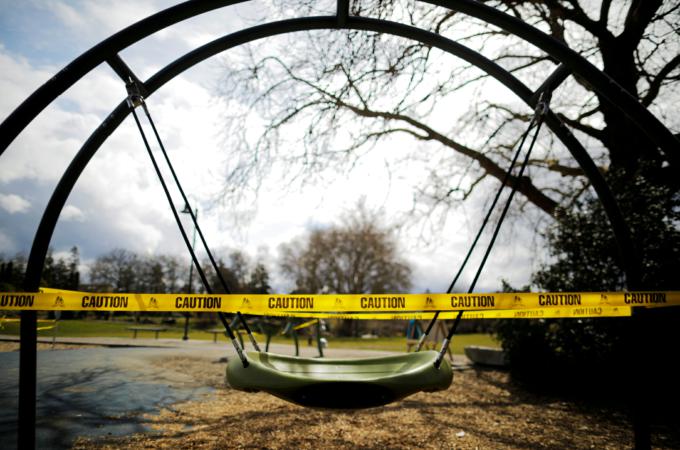Our Christian calling and social distancing
The advent of the novel coronavirus has set into motion so many unprecedented actions and effects that it's hard to keep track or make sense of them.
"Can you believe it?" is a refrain I find myself saying reflexively about everything from the stock market's volatility to the cancellation of professional sporting events to the scarcity of frozen vegetables in local grocery stores.
It is clear from scientists and sociologists that "social distancing" en masse is our greatest chance at slowing the spread of the virus and giving our health care systems the best possible shot at keeping up with the demand (or at least not falling too gravely behind).
I've been heartened by how people of faith and goodwill have embraced the sacrifices required to preserve the common good.
The global phenomenon of imposed isolation provides an important moment to call to mind the many people who experience "social distancing" as a daily, lived reality -- most often not of their choosing.
Throughout history, believers have found bold, creative and prophetic ways to demonstrate solidarity and communion with those on the physical or existential margins of society. This is such a moment.
As we go into our own isolation, we might ask ourselves, "Who are the people for whom this is routine, and how can we draw close to them now and when this is over?" Our isolation is likely to be temporary. For these folks, that's not a guarantee.
-- The sick and homebound. As social events and large gatherings, including public Mass, have been shut down, I have been thinking of the elderly, infirm, hospitalized and homebound who cannot take part in recreational, social or religious events.
How often we forget those who are isolated due to sickness or old age; those whose disabilities render them dependent on others for transportation to and from activities; those who rely on others to bring them holy Communion.
When our isolation is over, can we commit to visiting them more often or bringing them Jesus, present in the Eucharist? In the meantime, can we write to them or call them to let them know we are thinking of them?
-- The imprisoned. No other group of people experience enforced "social distancing" like the incarcerated. I confess that it was not until Pope Francis' election that I paid any meaningful attention to how painstaking it must be to be cut off from society for your worst mistake.
His Holy Thursday tradition of washing prisoners' feet and visiting the incarcerated on his apostolic visits put names and faces on people I had only counted by number. If we hope to reintegrate these people into society (where possible), we need to take seriously the cause of prison reform.
And for those with a life sentence or those on death row, perhaps we can offer them human contact through letters and donations, and visits when it's appropriate. To be cut off is one thing; to feel forgotten for the remainder of one's life is another.
-- Those suffering from mental illness. Our era has seen an unprecedented rise in anxiety and depression that cuts across race, gender and age groups.
While there is less stigma surrounding those who experience psychological suffering and better effort to help them remain integrated into society, the struggle for those with mental illness is interior and often invisible.
This means that people can feel intensely isolated even when still in the mix. Can we reach out more often to those we know who are fighting daily internal battles? When we're able to, can we visit those who live in group homes or offer support to those who care for loved ones with mental illness?
-- The displaced and the homeless. One of the greatest humanitarian plights of our generation is the refugee crisis.
I can't count the number of photos and news stories of displaced families that have broken my heart in the past few years, of families making the impossible decision to leave home, country and relatives for the chance of a better life -- or survival -- in a foreign land.
I have been thinking, too, of people who are homeless, who live each day without a stable social network of friends, family, co-workers and neighbors. Can we reimagine how to help these people establish a home, find work and build a social support system after having gone without it for a time?
I am hopeful that these days of quarantine and social distancing will eventually end. I'm also hopeful that this pruning will bear great fruit down the road, including works of mercy and advocacy for those for whom social distancing is the norm.
This is the time to reimagine Jesus' command to love our neighbor. Let's not squander the chance to close the "social distance" between ourselves and those on the margins.
- Elise Italiano Ureneck, associate director of the Center for the Church in the 21st Century at Boston College, writes the "Finding God in All Things" column for Catholic News Service.



















